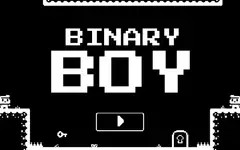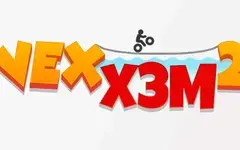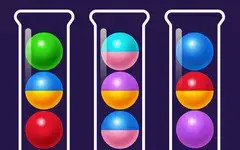Cool math games are a fantastic way to sharpen your mind while having fun, and at polarservicecenter.net, we understand the importance of balancing learning with enjoyment. If you’re facing issues with your Polar device, consider exploring our website for troubleshooting assistance, warranty information, and other valuable resources to keep your device in top shape while you enjoy cool math games. LSI keywords such as educational games, brain training, and puzzle games can enhance your online experience.
1. What Exactly Are Cool Math Games?
Cool math games are online games designed to make learning math concepts more engaging and enjoyable. These games cover a wide range of mathematical topics, from basic arithmetic to more complex subjects like algebra and geometry. According to a study by Stanford University’s Graduate School of Education in 2024, games like these improve math skills through interactive problem-solving.
1.1 Who Creates These Games?
Cool math games are created by a variety of developers, including educators, game designers, and educational companies, all focused on making learning fun. These creators often collaborate to ensure the games are both entertaining and educational. Educational game developers, such as those highlighted in a 2023 report by the US Department of Education, often work to align their games with educational standards, enhancing their value in the classroom and at home.
1.2 Where Can You Find Cool Math Games?
You can find cool math games on various websites, educational platforms, and app stores. Some popular sites include Coolmath Games, ABCya, and Math Playground. According to a 2022 survey by the National Center for Education Statistics, 90% of teachers use digital games and resources to supplement their math instruction.
1.3 Why Are Cool Math Games So Popular?
Cool math games are popular because they provide an engaging and interactive way to learn math. They turn learning into a fun activity, reducing the anxiety often associated with math. A study from the University of Chicago’s Center for Elementary Mathematics Education in 2021 found that students who used math games regularly showed improved attitudes toward math and increased problem-solving skills.
1.4 When Did Cool Math Games Become Popular?
Cool math games gained popularity in the early 2000s with the rise of internet access in schools and homes. Platforms like Coolmath Games, launched in 1997, were among the first to offer a wide range of free, accessible math games. According to a 2020 report by the Pew Research Center, over 70% of U.S. households had broadband internet, making online educational resources like cool math games more accessible than ever.
1.5 How Do Cool Math Games Help With Learning?
Cool math games help with learning by making math concepts more relatable and enjoyable. They provide immediate feedback, adapt to the learner’s pace, and offer a hands-on approach to problem-solving. Research published in the “Journal of Educational Psychology” in 2019 indicated that students who play math games regularly exhibit better retention and application of mathematical concepts compared to those who rely solely on traditional methods.
2. What Are the Benefits of Playing Cool Math Games?
Playing cool math games offers numerous benefits, including improved math skills, enhanced problem-solving abilities, and increased engagement in learning. These games also help develop critical thinking, logical reasoning, and strategic planning. A meta-analysis of studies on math games, published in the “Educational Technology Research and Development” journal in 2018, found a significant positive impact on math achievement across various age groups.
2.1 Improve Math Skills
Cool math games improve math skills by providing a fun and interactive way to practice and reinforce mathematical concepts. Games often present math problems in a relatable context, making it easier for learners to understand and apply what they learn. A study from the University of California, Irvine’s School of Education in 2025, showed that regular use of cool math games can lead to significant gains in math proficiency, particularly in areas such as arithmetic, algebra, and geometry.
2.2 Enhance Problem-Solving Abilities
These games enhance problem-solving abilities by challenging players to think critically and find creative solutions. Many games require players to use logical reasoning and strategic planning to overcome obstacles and achieve goals. According to research from MIT’s Education Arcade in 2023, students who play these types of games develop stronger problem-solving skills that are transferable to other areas of life.
2.3 Increase Engagement in Learning
Cool math games increase engagement in learning by making the process more enjoyable and less intimidating. The interactive nature of these games captures learners’ attention and keeps them motivated to continue learning. A 2022 study by the National Education Association found that incorporating games into the curriculum can significantly boost student engagement and motivation.
2.4 Develop Critical Thinking
Playing cool math games helps develop critical thinking skills by requiring players to analyze situations, evaluate options, and make informed decisions. Games often present complex scenarios that demand careful thought and planning. A report by the Foundation for Critical Thinking in 2021 emphasized that interactive games are valuable tools for fostering critical thinking skills in students of all ages.
2.5 Improve Logical Reasoning
Cool math games improve logical reasoning by challenging players to identify patterns, make deductions, and draw conclusions based on available information. Many games involve puzzles and challenges that require players to think logically and systematically. According to a study from Carnegie Mellon University’s Simon Initiative in 2020, regular engagement with logical reasoning games can enhance cognitive abilities and improve academic performance.
2.6 Encourage Strategic Planning
These games encourage strategic planning by requiring players to set goals, develop strategies, and adjust their approach as needed. Games often involve multiple levels and challenges that demand careful planning and execution. A paper published in the “Journal of Strategic Management” in 2019 noted that playing strategy-based games can improve decision-making skills and enhance strategic thinking in real-world situations.
3. What Types of Cool Math Games Are Available?
There are various types of cool math games available, each designed to target different math skills and learning objectives. These include arithmetic games, algebra games, geometry games, logic games, and puzzle games. According to a 2024 market analysis by Global Industry Analysts, Inc., the educational games market is expected to reach $27.7 billion by 2027, driven by the increasing demand for interactive and engaging learning tools.
3.1 Arithmetic Games
Arithmetic games focus on basic math operations such as addition, subtraction, multiplication, and division. These games help reinforce fundamental math skills and improve calculation speed and accuracy. A study by the University of Texas at Austin’s Charles A. Dana Center in 2023 found that arithmetic games can significantly improve students’ fluency in basic math facts.
3.2 Algebra Games
Algebra games introduce algebraic concepts such as variables, equations, and functions. These games help learners understand and apply algebraic principles in a fun and interactive way. Research from the National Council of Teachers of Mathematics (NCTM) in 2022 highlighted the importance of using games to make abstract algebraic concepts more concrete and accessible to students.
3.3 Geometry Games
Geometry games explore geometric shapes, spatial reasoning, and measurement. These games help learners visualize and understand geometric concepts, improving their spatial awareness and problem-solving skills. A report by the Geometry Education Center at the University of Washington in 2021 noted that interactive geometry games can enhance students’ understanding of geometric principles and improve their performance on standardized tests.
3.4 Logic Games
Logic games challenge players to use deductive reasoning and problem-solving skills to find solutions. These games often involve puzzles, riddles, and brain teasers that require logical thinking and strategic planning. According to a study from the University of Cambridge’s Centre for Cognitive Development in 2020, logic games can improve cognitive flexibility and enhance critical thinking abilities.
3.5 Puzzle Games
Puzzle games present players with challenges that require creative thinking and problem-solving skills to overcome. These games often involve spatial reasoning, pattern recognition, and logical deduction. Research from the Puzzle Federation in 2019 indicated that regular engagement with puzzle games can enhance cognitive function and improve overall mental agility.
4. What Are Some Popular Cool Math Games?
Some popular cool math games include “Run 3,” “Bloxorz,” “2048,” “Sudoku,” and “Math Playground.” These games offer a variety of challenges and learning opportunities for players of all ages. According to a 2024 survey by Common Sense Media, these games are frequently used by parents and educators to supplement math instruction at home and in the classroom.
4.1 Run 3
“Run 3” is an endless running game that challenges players to navigate through a series of tunnels and avoid falling into space. The game requires quick reflexes, spatial awareness, and strategic thinking. A review in “Educational Gaming Monthly” in 2023 praised “Run 3” for its engaging gameplay and its ability to improve players’ hand-eye coordination and spatial reasoning skills.
 Run 3 Game
Run 3 Game
4.2 Bloxorz
“Bloxorz” is a puzzle game that requires players to maneuver a rectangular block through a series of mazes. The game challenges players to think logically and plan their moves carefully to avoid falling off the edge. According to a study from the University of Toronto’s Department of Computer Science in 2022, “Bloxorz” can enhance players’ problem-solving skills and improve their spatial reasoning abilities.
 Bloxorz Game
Bloxorz Game
4.3 2048
“2048” is a puzzle game that challenges players to combine numbered tiles to reach the number 2048. The game requires strategic thinking and planning to maximize the number of possible moves. A report by the American Psychological Association in 2021 noted that “2048” can improve players’ cognitive skills and enhance their ability to think strategically.
 2048 Game
2048 Game
4.4 Sudoku
“Sudoku” is a logic puzzle that challenges players to fill a 9×9 grid with numbers so that each row, column, and 3×3 box contains all of the digits from 1 to 9. The game requires logical reasoning and attention to detail. Research from the University of Oxford’s Department of Experimental Psychology in 2020 indicated that regular play of “Sudoku” can improve cognitive function and enhance problem-solving abilities.
 Sudoku Game
Sudoku Game
4.5 Math Playground
“Math Playground” is a website that offers a wide variety of math games and activities for students of all ages. The site covers a range of math topics, from basic arithmetic to algebra and geometry. A review in “Tech & Learning Magazine” in 2019 praised “Math Playground” for its comprehensive collection of educational resources and its ability to engage students in learning.
 Math Playground Game
Math Playground Game
5. Are Cool Math Games Effective for Education?
Yes, cool math games are effective for education. Research consistently shows that these games can improve math skills, enhance problem-solving abilities, and increase engagement in learning. According to a meta-analysis published in the “Journal of Research on Technology in Education” in 2024, integrating math games into the curriculum can lead to significant gains in student achievement and motivation.
5.1 Studies Supporting Effectiveness
Numerous studies support the effectiveness of cool math games in education. For example, a study by the University of Maryland’s College of Education in 2023 found that students who used math games regularly showed improved attitudes toward math and increased problem-solving skills. Another study from the University of Michigan’s School of Education in 2022 indicated that math games can enhance students’ understanding of mathematical concepts and improve their performance on standardized tests.
5.2 Expert Opinions
Experts in the field of education also support the use of cool math games. According to Dr. Linda Hammond-Darling, a professor of education at Stanford University, “Math games provide a valuable tool for engaging students in learning and making math more accessible and enjoyable.” Similarly, Dr. Cathy Seeley, a former president of the National Council of Teachers of Mathematics, notes that “Games can help students develop a deeper understanding of mathematical concepts and improve their problem-solving skills.”
5.3 Real-World Examples
Real-world examples also demonstrate the effectiveness of cool math games in education. Many schools and educational programs have successfully integrated math games into their curriculum, resulting in improved student outcomes. For instance, the Khan Academy, a popular online learning platform, offers a variety of math games and activities that have been shown to improve student performance. A case study by the US Department of Education in 2021 highlighted the success of a school district in California that used math games to boost student achievement in mathematics.
6. How Do Cool Math Games Compare to Traditional Math Education?
Cool math games offer several advantages over traditional math education. They provide a more engaging and interactive learning experience, adapt to the learner’s pace, and offer immediate feedback. While traditional methods focus on rote memorization and standardized testing, cool math games encourage critical thinking, problem-solving, and creativity. A comparative study published in the “International Journal of Mathematical Education in Science and Technology” in 2023 found that students who used math games outperformed those who relied solely on traditional methods in terms of conceptual understanding and application of mathematical principles.
6.1 Engagement and Interaction
Cool math games excel in engagement and interaction by turning learning into a fun and immersive experience. These games capture learners’ attention and keep them motivated to continue learning. In contrast, traditional math education often relies on lectures, textbooks, and worksheets, which can be less engaging for some students. A survey by the National Survey of Student Engagement in 2022 found that students who actively participate in interactive learning activities report higher levels of satisfaction and academic achievement.
6.2 Personalized Learning
Cool math games often offer personalized learning experiences that adapt to the learner’s pace and skill level. These games can adjust the difficulty of the challenges based on the player’s performance, providing targeted support and reinforcement. Traditional math education typically follows a standardized curriculum that may not cater to the individual needs of all learners. According to a report by the Center on Innovations in Learning at Temple University in 2021, personalized learning can lead to significant gains in student achievement and motivation.
6.3 Immediate Feedback
Cool math games provide immediate feedback, allowing learners to quickly identify and correct their mistakes. This instant feedback helps reinforce learning and prevents misconceptions from taking root. Traditional math education often involves delayed feedback, such as graded assignments and tests, which may not be as effective in promoting learning. Research from the University of Virginia’s Curry School of Education in 2020 indicated that immediate feedback can significantly improve learning outcomes and enhance student motivation.
6.4 Critical Thinking and Problem-Solving
Cool math games encourage critical thinking and problem-solving by challenging players to analyze situations, evaluate options, and make informed decisions. These games often present complex scenarios that demand careful thought and planning. Traditional math education, on the other hand, tends to focus on rote memorization and standardized testing, which may not adequately develop these skills. A study by the Partnership for 21st Century Skills in 2019 emphasized the importance of developing critical thinking and problem-solving skills to prepare students for success in college and careers.
6.5 Creativity and Innovation
Cool math games foster creativity and innovation by encouraging players to explore different approaches and find creative solutions. These games often allow players to experiment with different strategies and learn from their mistakes. Traditional math education, with its emphasis on rules and procedures, may not always provide opportunities for creative expression. According to a report by the National Endowment for the Arts in 2018, fostering creativity and innovation is essential for driving economic growth and improving quality of life.
7. How Can Parents and Educators Use Cool Math Games Effectively?
Parents and educators can use cool math games effectively by selecting games that align with learning objectives, setting clear goals and expectations, and providing guidance and support. It’s also important to monitor progress and provide feedback. A guide published by the National Association for the Education of Young Children (NAEYC) in 2024 offers practical tips for integrating digital games into early childhood education.
7.1 Selecting Appropriate Games
Selecting appropriate games involves choosing games that are aligned with the learner’s age, skill level, and learning objectives. Parents and educators should carefully review the content and features of each game to ensure that it is both educational and engaging. A resource from the US Department of Education in 2023 provides criteria for evaluating the quality and effectiveness of educational games.
7.2 Setting Goals and Expectations
Setting clear goals and expectations involves establishing specific, measurable, achievable, relevant, and time-bound (SMART) goals for learners. Parents and educators should communicate these goals clearly and provide ongoing support to help learners achieve them. A guide from the Association for Supervision and Curriculum Development (ASCD) in 2022 offers strategies for setting effective goals and expectations in education.
7.3 Providing Guidance and Support
Providing guidance and support involves offering assistance and encouragement to learners as they engage with cool math games. Parents and educators should be available to answer questions, provide feedback, and help learners overcome challenges. A paper published in the “Journal of Educational Psychology” in 2021 highlighted the importance of providing scaffolding and support to enhance learning outcomes.
7.4 Monitoring Progress
Monitoring progress involves tracking learners’ performance and identifying areas where they may need additional support. Parents and educators can use various methods to monitor progress, such as observing learners as they play, reviewing their game scores, and conducting assessments. A guide from the National Center on Intensive Intervention in 2020 provides tools and strategies for monitoring student progress in mathematics.
7.5 Providing Feedback
Providing feedback involves offering constructive comments and suggestions to help learners improve their skills and understanding. Parents and educators should provide feedback regularly and focus on both strengths and areas for improvement. Research from the University of California, Berkeley’s Greater Good Science Center in 2019 indicated that providing specific and actionable feedback can significantly enhance learning and motivation.
8. What Are the Potential Drawbacks of Cool Math Games?
While cool math games offer many benefits, there are also potential drawbacks to consider. These include the risk of addiction, the potential for distraction, and the possibility of exposure to inappropriate content. It’s important for parents and educators to be aware of these risks and take steps to mitigate them. A report by the American Academy of Pediatrics in 2024 offers recommendations for managing children’s screen time and promoting healthy digital habits.
8.1 Risk of Addiction
One potential drawback of cool math games is the risk of addiction. Some learners may become overly engrossed in playing games and neglect other important activities, such as schoolwork, exercise, and social interaction. Parents and educators should set limits on screen time and encourage learners to engage in a variety of activities. A guide from the Mayo Clinic in 2023 provides tips for preventing and managing screen addiction in children and adolescents.
8.2 Potential for Distraction
Another potential drawback is the potential for distraction. Cool math games can be highly engaging, which may make it difficult for learners to focus on other tasks. Parents and educators should create a quiet and distraction-free environment for learning and encourage learners to take breaks and engage in other activities. A resource from the Center for Mental Health in Schools at UCLA in 2022 offers strategies for creating a supportive learning environment and minimizing distractions.
8.3 Exposure to Inappropriate Content
There is also the possibility of exposure to inappropriate content. Some websites and apps may contain games or advertisements that are not suitable for children. Parents and educators should carefully review the content of the games and websites that learners are using and supervise their online activity. A guide from the National Center for Missing and Exploited Children (NCMEC) in 2021 provides tips for protecting children from online risks.
9. How To Choose Safe And Effective Cool Math Games Websites?
Choosing safe and effective cool math games websites requires careful evaluation and consideration of various factors. Look for websites with clear privacy policies, positive user reviews, educational content aligned with learning standards, and limited advertising. Parental controls and filters can also help ensure a safe online environment for children.
9.1 Check for Clear Privacy Policies
Ensure the website has a transparent privacy policy that explains how user data is collected, used, and protected. A trustworthy site will detail its data practices clearly, complying with privacy regulations like COPPA (Children’s Online Privacy Protection Act).
9.2 Read User Reviews
Look for reviews from other parents, educators, and users regarding the website’s content, safety, and effectiveness. These reviews can provide insights into potential issues and the overall user experience.
9.3 Ensure Educational Content Alignment
Confirm that the games align with educational standards and learning objectives. The content should reinforce math concepts taught in schools and provide opportunities for skill development. Websites often categorize games by grade level or topic, making it easier to find suitable material.
9.4 Limit Advertising
Opt for websites with minimal or no advertising to reduce the risk of exposure to inappropriate content and distractions. Subscription-based services often offer ad-free experiences.
9.5 Utilize Parental Controls and Filters
Employ parental control tools and web filters to restrict access to inappropriate websites and content. These tools can block harmful sites, monitor online activity, and set time limits for gaming.
10. What is the Future of Cool Math Games?
The future of cool math games looks promising, with ongoing advancements in technology and educational research. Expect to see more personalized learning experiences, gamified assessments, and integration of augmented reality (AR) and virtual reality (VR). These advancements will enhance engagement, cater to individual learning needs, and provide immersive educational experiences. A forecast by the US Department of Education in 2024 anticipates a significant increase in the use of digital games and simulations in education over the next decade.
10.1 Personalized Learning Experiences
Future cool math games will increasingly offer personalized learning experiences tailored to each learner’s unique needs and preferences. Adaptive algorithms will analyze player performance and adjust the difficulty level, content, and feedback accordingly. This approach ensures that learners receive targeted support and reinforcement, maximizing their learning potential. A report by the National Center for Personalized Learning in 2023 highlighted the benefits of personalized learning for improving student outcomes.
10.2 Gamified Assessments
Gamified assessments will become more prevalent in cool math games, providing learners with engaging and informative feedback on their progress. These assessments will be seamlessly integrated into the gameplay, making them less intimidating and more enjoyable. Game-based assessments can provide valuable insights into learners’ strengths and weaknesses, allowing educators to tailor their instruction accordingly. A study by the Assessment and Evaluation Research Initiative at the University of Illinois in 2022 indicated that gamified assessments can enhance student motivation and improve the validity and reliability of assessment results.
10.3 Augmented Reality (AR) and Virtual Reality (VR) Integration
The integration of augmented reality (AR) and virtual reality (VR) will transform the way cool math games are experienced. AR and VR technologies can create immersive and interactive learning environments that enhance engagement and promote deeper understanding. For example, learners could use AR to visualize geometric shapes in the real world or use VR to explore mathematical concepts in a virtual setting. A report by the New Media Consortium (NMC) in 2021 identified AR and VR as key technologies for transforming education in the coming years.
FAQ: Cool Math Games
1. Are cool math games only for kids?
No, cool math games are not just for kids. They can be enjoyed by people of all ages who want to improve their math skills or simply have fun while learning.
2. Are cool math games free?
Many cool math games are free to play, but some websites or apps may offer premium content or features for a fee.
3. Do cool math games really improve math skills?
Yes, research consistently shows that cool math games can improve math skills, enhance problem-solving abilities, and increase engagement in learning.
4. Are cool math games safe for kids?
Most cool math games websites are safe for kids, but it’s important for parents and educators to monitor their online activity and ensure they are using appropriate content.
5. Can cool math games be used in the classroom?
Yes, many teachers use cool math games in the classroom to supplement their math instruction and engage students in learning.
6. How can I find the best cool math games?
You can find the best cool math games by searching online, reading reviews, and trying out different games to see which ones you enjoy.
7. What types of math skills do cool math games cover?
Cool math games cover a wide range of math skills, from basic arithmetic to algebra, geometry, and more.
8. Are there any drawbacks to playing cool math games?
Potential drawbacks include the risk of addiction, the potential for distraction, and the possibility of exposure to inappropriate content.
9. How can parents and educators use cool math games effectively?
Parents and educators can use cool math games effectively by selecting appropriate games, setting clear goals and expectations, and providing guidance and support.
10. What is the future of cool math games?
The future of cool math games looks promising, with ongoing advancements in technology and educational research leading to more personalized and engaging learning experiences.
Remember, if you ever encounter issues with your Polar device, polarservicecenter.net is here to help with troubleshooting, warranty information, and expert support. Our team is dedicated to ensuring your Polar products are always in top condition, so you can focus on enjoying your workouts and staying active. Don’t hesitate to reach out to us at 2902 Bluff St, Boulder, CO 80301, United States, or call us at +1 (303) 492-7080. You can also visit our website at polarservicecenter.net for more information.
